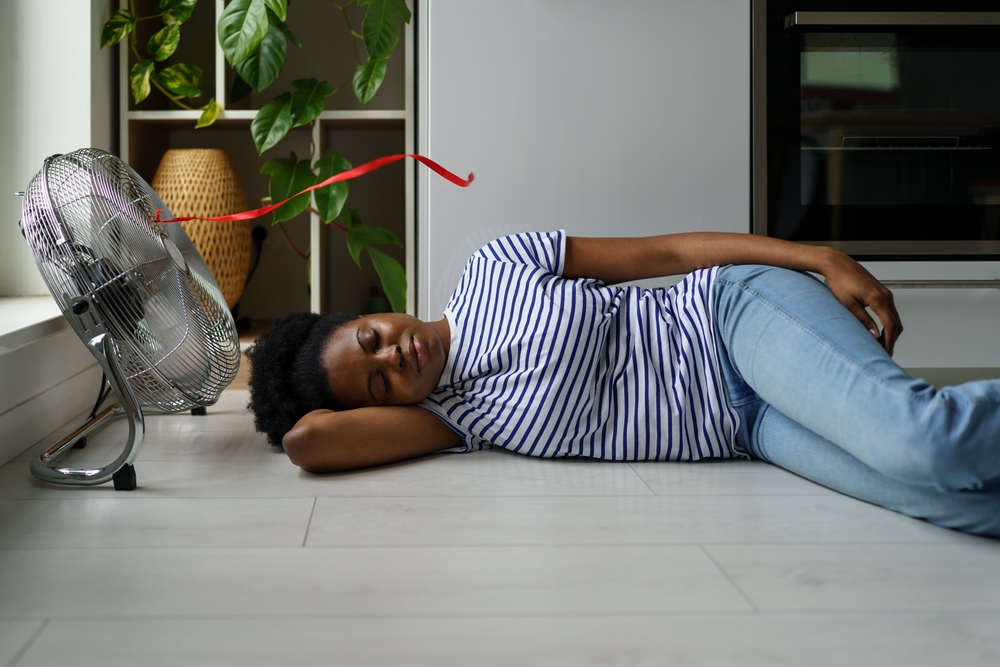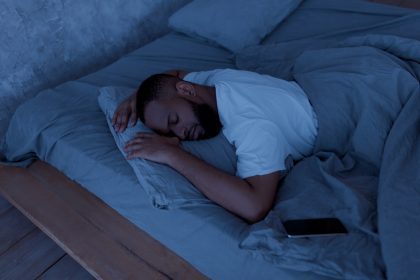Millions of people rely on fans to stay cool while sleeping, especially during hot summer nights or in homes without air conditioning. While fans provide immediate comfort and cost-effective cooling, sleeping directly under a fan for hours can create unexpected health problems that many people don’t realize until symptoms develop.
Here’s the thing — that gentle breeze keeping you cool might be wreaking havoc on your body in ways you never imagined.
Respiratory problems from constant air flow
Sleeping under a fan blowing directly on your face and airways can dry out your nasal passages, throat and lungs throughout the night. This constant air movement removes moisture from your respiratory system faster than your body can replace it.
Dry nasal passages become more susceptible to irritation and infection. When the protective mucus membranes in your nose and throat dry out, they can’t effectively filter out bacteria, viruses and allergens. People with asthma or other respiratory conditions may experience worsened symptoms when sleeping under fans.
The constant air movement also stirs up dust, pet dander and other allergens in your bedroom, continuously circulating these irritants into your respiratory system while you sleep.
Skin and eye irritation from dehydration
Fan air can cause significant moisture loss from your skin and eyes during the eight hours you’re sleeping. This prolonged exposure to moving air essentially dehydrates the surface of your body, leading to dry, itchy skin and irritated eyes.
Your skin loses moisture through transepidermal water loss, and fans accelerate this process dramatically. People often wake up with tight, flaky skin, especially on their face and any other areas directly exposed to fan air.
Eyes are particularly vulnerable because they rely on a thin tear film for protection. Fan air can evaporate this tear film, leading to dry, gritty, red eyes in the morning.
Muscle stiffness and tension from targeted cooling
When a fan blows on specific parts of your body all night, it can cause uneven cooling that leads to muscle tension and stiffness. Your body works to maintain core temperature, and constant air flow on certain areas can trigger muscle contractions.
Many people wake up with neck, shoulder or back stiffness after sleeping under a fan, especially if the air flow was directed at these areas. The muscles tense up in response to the cooling effect, similar to how you might tense up when stepping into air conditioning.
This targeted cooling can also disrupt your body’s natural temperature regulation during sleep, potentially affecting sleep quality and leaving you feeling unrested.
Sinus congestion and morning headaches
The dry air from fans can cause your sinuses to become congested and inflamed overnight. When nasal passages dry out, they can swell and block normal drainage, leading to that stuffy feeling many people experience after sleeping with a fan.
This sinus congestion often triggers headaches, particularly tension headaches around the forehead and temples. The combination of dry air, muscle tension and disrupted sleep creates a perfect storm for morning headaches that can persist throughout the day.
Safer alternatives for staying cool
You don’t have to suffer through hot nights to avoid these health issues. Position fans to circulate air around the room rather than blowing directly on your body. Ceiling fans on low speed can provide air circulation without the direct air flow that causes problems.
Use a humidifier alongside your fan to maintain proper moisture levels in the air. This helps prevent the drying effects while still providing cooling benefits. Set timers on fans so they turn off after you fall asleep, giving you initial cooling comfort without all-night exposure.
Consider investing in better bedding materials that wick moisture and regulate temperature naturally, reducing your dependence on fans for comfortable sleep.
Bottom line? Pay attention to how you feel after sleeping under a fan. If you’re waking up with dry eyes, stuffy sinuses, or unexplained stiffness, your cooling solution might be creating more problems than it solves. Smart fan use can keep you cool without compromising your health.

















